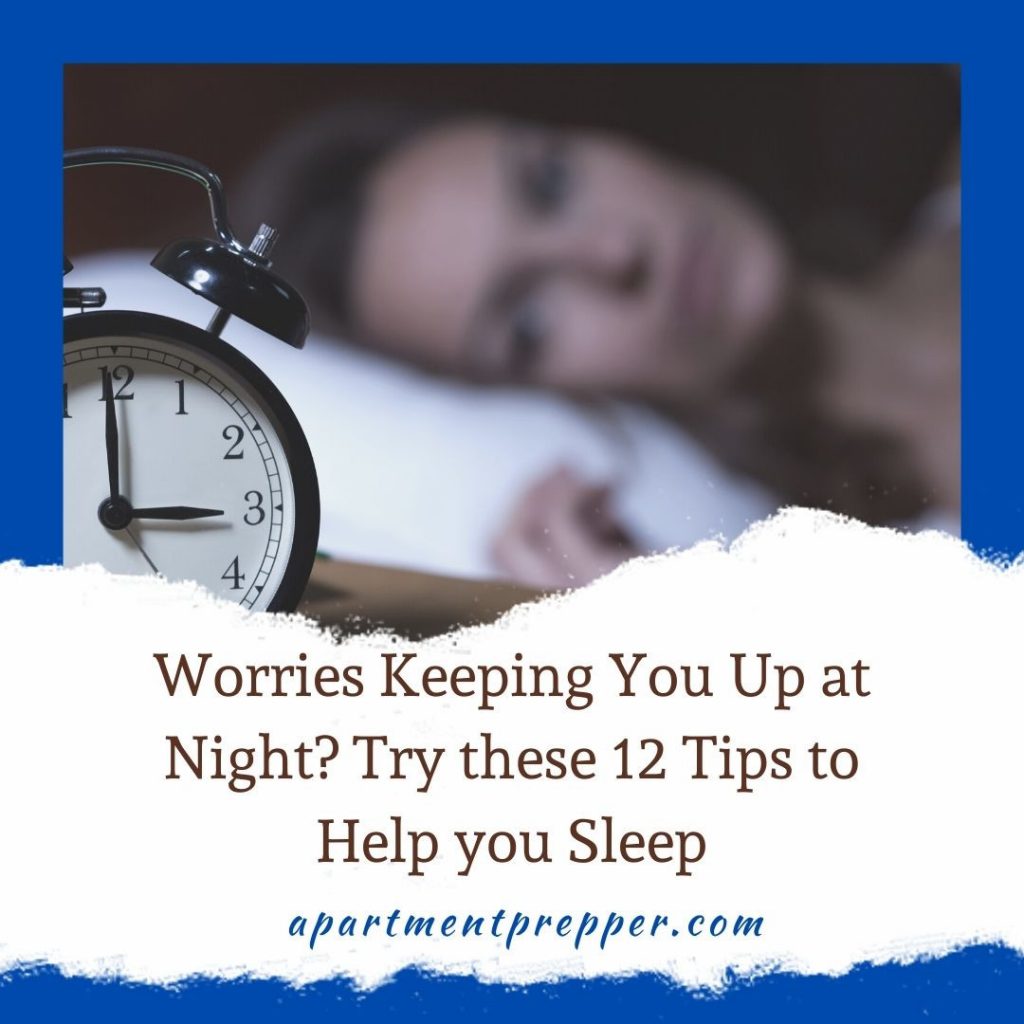by Bernie Carr
Lately, it seems we have been inundated with so many disturbing news – COVID-19 continues to spread, mass unemployment, riots in the cities, not to mention recent natural disasters… The things we fret about can be overwhelming. Even a prepper who has done as much as he or she is able to, can’t help but worry if it’s enough. These worries can lead to sleepless nights, filled with relentless, upsetting, doom-filled thoughts causing you toss and turn your way into the next morning.
Just a quick glance at Facebook posts from people posting late at night or in the wee hours of the morning tell me a lot of people having the same problem. Some just live with it, others take prescription anxiety medicine, and some others take non prescription sleep aids.
What happens if you keep losing sleep?
Sleep is so important to health and well-being. Lack of sleep wreaks havoc on your health, not to mention makes you feel sluggish the next day.
- Getting less than six hours of sleep at night increases your risk of being in an accident, according to the National Sleep Foundation.
- Lack of sleep diminishes your problem solving skills.
- Consistently missing sleep also increases your risk for high blood pressure, diabetes, heart disease and cancer.
- Not getting enough sleep was even found to contribute to weight gain.
Get yourself checked
To rule out any physical reasons for lack of sleep, see a doctor. I had a recent checkup and the doctor said lack of sleep was a common complaint among all his patients. He named stress as the main reason. I decided to find out about non pharmaceutical methods to help get a good night’s sleep. (Note: I am not a medical professional, these are just tips I found helpful in my own experience.)
Tips to help you sleep better
Here are a few ideas that seem to work:
1. Get into a comforting routine close to bedtime.
Take a warm shower, sip some camomile tea, or read a mindless novel. Try something soothing that will get you to slow down and relax.
2. Go to sleep the same time every night.
By keeping to the same schedule on weekends and week nights, your body’s internal clock will adapt to sleeping and waking at a consistent time.
3. Keep your room dark at night.
Living in an apartment in an urban area, we get a lot of light filtering in from neighboring buildings. The apartment also keeps bright lights outside for safety reasons, which is a good thing, but too much light affects sleep. We installed “blackout curtains” over the apartment blinds to keep the bright lights outside from affecting our sleep.
4. Exercise daily.
I find that I sleep a lot better when I do some form of exercise daily. Otherwise I wake up at 2 am and am unable to fall back to sleep until morning.
5. Don’t eat too close to bedtime.
Going to bed with a full stomach is bad news for a good night’s sleep. If you know you are going to eat a heavy meal, don’t eat late.
6. Set your thermostat to a cooler setting.
A cool room seems to be more conducive to sleep.
7. Limit your news gathering to the morning hours.
I find that if I watch too many news shows or read too much stuff on the internet right before going to bed, I will either dream about it or worry about something. Best get your news fix in the morning. The same advice applies to watching disturbing YouTube videos, reading political forums or any COVID-19 updates: watch them early in the day!
8. Limit caffeine.
I drink three cups of coffee but all before noon. As much as I’d like it, I find that if I indulge in caffeinated drinks late in the day I tend to lose sleep.
9. Face your fears.
What’s keeping you up at night? Money problems? Worried you haven’t prepared? Whatever it is, come the next day, sit down and make a plan to deal with it. Take the steps you’ve been putting off.
10. Put away your smart phone or tablet
Studies show that using electronic devices right before going to bet interferes with sleep. Turn off your devices and put them away at least 30 minutes before you go to bed.
11. Focus on your breathing
Sometimes your mind keeps racing and thinking the same thoughts over and over – those same ones that cause you to open your eyes, staring in the dark. This is when focusing on your breathing helps. When I have trouble sleeping, I practice this breathing technique from Dr. Andrew Weil, the 4-7-8 relaxing breath exercise:
- Place the tip of your tongue behind your upper teeth.
- Exhale through your mouth, making a whooshing sound.
- Inhale through your nose, mentally counting to four
- Hold your breath, counting to seven.
- Exhale through your mouth, with a whooshing sound, to a count of eight.
- Repeat the steps three more times.
The key is stopping yourself from the cycle of disturbing thoughts, and focusing on your breathing.
12. Don’t forget your prayers.
Saying a prayer of thanks before sleeping always seems to help me. Thinking of all the things for which you are grateful will give you calming thoughts that will help you settled down and rest.
There is so much turmoil in the world today, but so much of it is beyond our control. You can only influence what’s around you. If you have not done anything to prepare, start now. If you have prepared, be confident you have done your best to be prepared for whatever happens. Don’t lose sleep over it. Your health shouldn’t suffer due to your worries. I bid you peace!
********************************************************************
We are an affiliate of Amazon.com, which means we received a small commission if you click through one of our Amazon links when you shop, at totally no cost to you. This helps keep the lights on at the blog. Thanks!


